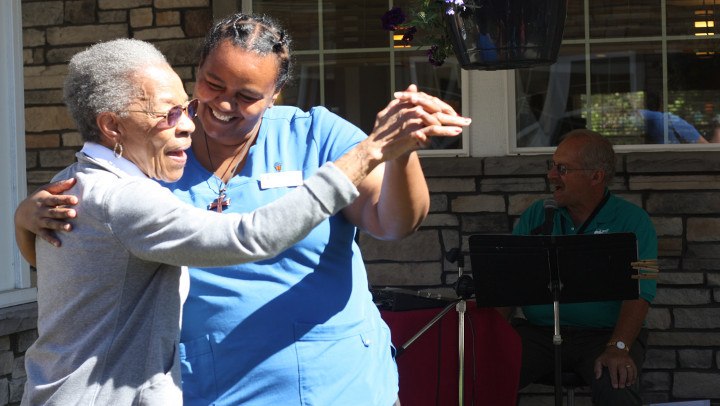
Socialization is important for all of us. But for those experiencing a form of dementia, such as Alzheimer’s, it takes on an even more critical role.
What do we mean by socialization?
Put within the context of an individual experiencing a dementia, socialization provides a controlled, yet varied climate of both human and environmental interaction. Some are intended to spark the senses, such as experiencing a new location, or smelling fresh flowers in a garden. Others may involve exposure to new faces in the form of other adults, younger people, or even animals. All are important to provide memory impaired individuals with a sense of connectedness.
As the Alzheimer’s Association on Alz.org points out: “Socialization proves to enhance the lives of those with Alzheimer’s disease or related dementia and their care partners. We’ve known for some time that being social is an essential part of one’s brain health with healthy diet and exercise.”
How can socialization help your loved one?
Here are 4 key reasons that experts encourage consistent socialization for individuals with dementia:
Of course sudden or sporadic exposure to new sites and people can feel threatening to the individual. So having structure and routine are important. Socialization should always occur in a safe and nurturing environment, ideally with people who can quickly pick up on subtle cues that tell them to pull back or encourage more interaction.
Socialization, when provided in a safe, structured manner, can make a positive difference in the quality of life for those people impaired by dementia. Making sure that your loved one is receiving a steady, yet fresh exposure to opportunities for socialization is important to keep them as healthy and connected as possible. Do this consistently, and you will notice the difference.